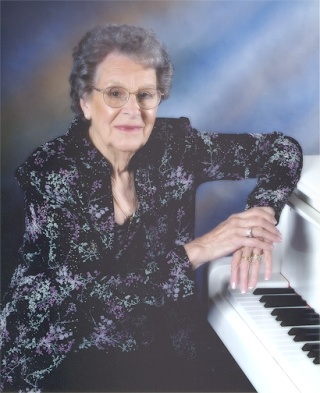Every year, North Bend resident Maisie Davis and her family help make the holidays merrier for children and needy families in the Valley.
Members of the Snoqualmie Kiwanis Club said ‘thanks’ with a plaque and medal, part of their recognition of “Everyday Heroes.”
Davis, a resident of the Snoqualmie Valley since 1935, is the former owner of Crown Tree Farm, which is now owned by her daughter and son-in-law, Mary and Marty Kester.
Each year, the farm donates a number of Christmas trees to the Mount Si Helping Hand Food Bank and the Encompass children’s organization. Davis is also a regular monetary donator to the food bank and other charities, asking nothing in return.
“We thought that was pretty special,” said Paul Tredway, Kiwanis vice president.
“The trees are a big hit,” said food bank volunteer Len Mattson.
The trees, which come in a variety of sizes and shapes, went fast.
Many of the people who come to the food bank would not have a Christmas tree without such donations.
“It was much appreciated,” Mattson said.
Valley residents don’t always hear about the good that’s done by their neighbors. The Everyday Hero award helps recognize those accomplishments.
This award, given on Thursday, Dec. 4, was the first that the Kiwanis had handed out in some time.
“We’re trying to get back into it,” Tredway said. “It’s an awesome thing to do.”
Davis was surprised by the award during a weekly coffee get-together that she and a dozen friends hold at the North Bend QFC.
“The group around her were all smiles and they thought it was really cool,” Tredway said.
While Davis felt the award was “wonderful,” she was also humble about getting it.
“I didn’t do anything in the first place,” Davis said.
“So I gave a little,” Davis said. “What’s that?”
“There are people who don’t have very much money,” she said. “They give, they’re the ones that need to be thanked.”
Davis credited Mary and Marty for the tree donations.
“Marty was the one that decided we ought to give trees,” Davis said.
Crown Tree Farm was planted in 1977, and started selling trees in 1984. Before that, her family ran a furniture and appliance store on the site, and Davis’ family simply enjoyed having the land.
Davis moved to the Valley as a freshman in high school.
“We were poor as church mice, [but] my dad was a go-getter.”
Originally from England, her father, E.W. Purser, was an educated man and a good salesman. Davis recalls that when people saw him coming, they sometimes drew the shades and pretended they weren’t home.
Davis worked for her mother and father in the appliance store, while her husband was a plumber, and a hard worker.
Davis said she used to buy food and bring it to the local food bank, but eventually figured that monetary donations could go further.
“I decided it would better to let them buy what they want.”



